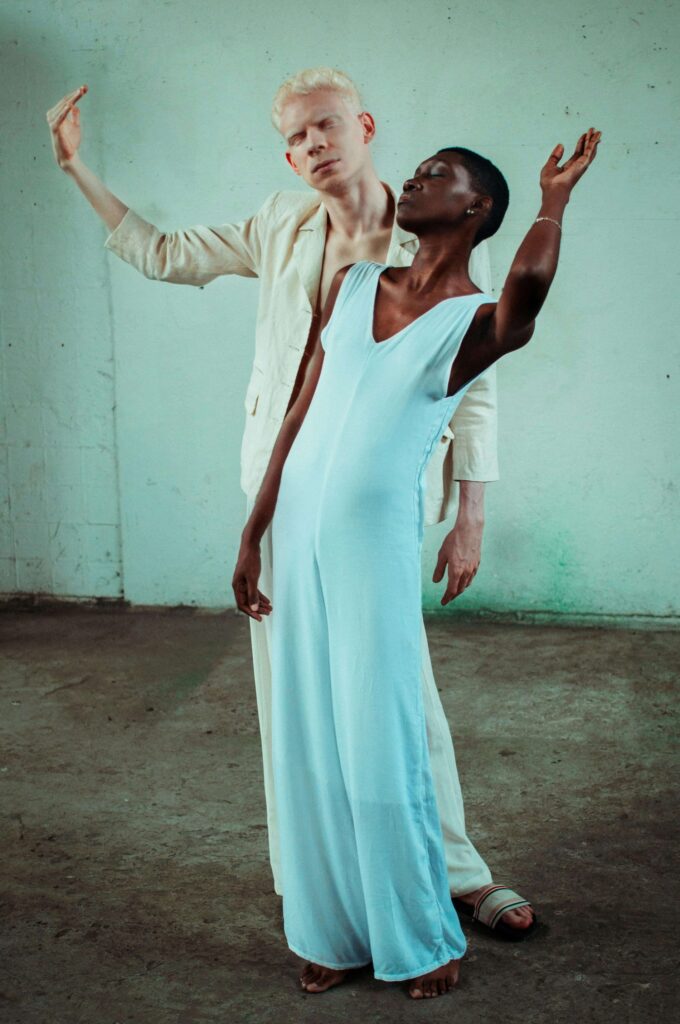 Relationships are complex, and sometimes couples find themselves at a crossroads, unsure whether to work on their relationship or go their separate ways. This is where discernment counseling comes into play. But what exactly is discernment counseling, and how can it help couples in this challenging situation? Let’s dive into the meaning and purpose of this unique form of therapy.
Relationships are complex, and sometimes couples find themselves at a crossroads, unsure whether to work on their relationship or go their separate ways. This is where discernment counseling comes into play. But what exactly is discernment counseling, and how can it help couples in this challenging situation? Let’s dive into the meaning and purpose of this unique form of therapy.
What is Discernment Counseling?
Discernment counseling is a specialized type of short-term therapy designed for couples who are uncertain about the future of their relationship. Traditional couples therapy, focuses on resolving relationship issues, while discernment counseling helps couples to get clarity and the confidence needed in order to decide whether to stay together and work on the relationship or move toward separation or divorce. To decide what to do in a deeply committed relationship, such as marriage or domestice partnership, is one of the hardest decisions any two people can make. Having a process like discernment counseling can be invaluable.
The Purpose of Discernment Counseling
The main goal of discernment counseling is not to solve the couple’s problems, but to help them decide on the next steps in their relationship. It’s about making an informed and thoughtful decision, rather than staying stuck in indecision or making a hasty choice. The process provides a safe space for both partners to express their feelings, concerns, and hopes for the future.
 The Process of Discernment Counseling
The Process of Discernment Counseling
The structured approach of discernment counseling encourages open communication and allows each partner to share their individual perspectives without fear of judgment. The therapist plays a vital role in facilitating these discussions, ensuring that both voices are heard equally. This supportive environment fosters empathy, helping couples explore their emotions and the underlying issues in their relationship. As couples navigate these sessions, they are giving the opportunity to honestly reflect on the strengths and weaknesses of their partnership. They may discuss past experiences, patterns of interaction, and their emotional needs. By engaging in this reflective process, partners can gain a deeper understanding of their relationship dynamics and the impact of their choices. Ultimately, the goal is to empower them to make an informed decision about their future together, whether that means committing to working on their relationship or choosing to part ways amicably. The journey through discernment counseling is often enlightening, providing both partners with a renewed sense of clarity and hope for what lies ahead.
How Does Discernment Counseling Work?
Discernment counseling uses a specific framework to aid couples in their decision-making process. It involves three stages: assessment, reflection, and decision. During the assessment phase, the therapist gathers information about the couple’s relationship history and identifies patterns that may contribute to their current struggles. This stage also includes individual sessions with each partner to explore their personal thoughts and feelings. In the reflection phase, the therapist helps couples delve deeper into their emotions and underlying issues within the relationship. This stage may involve identifying unmet needs, exploring communication styles, or examining past traumas that may be affecting the partnership. Finally, in the decision phase, couples work towards making a well-informed choice about their future together.
Structure of the sessions
Discernment counseling is no more than 5 sessions, during which the therapist works with the couple both together and individually. The first session is 2 hours, where each subsequent session is 1.5 hours.
Here’s how the session generally unfolds:
- Initial Assessment:The therapist meets with both partners to understand the current state of the relationship and each partner’s perspective on the relationship’s future.
- Individual Sessions Each partner has the opportunity to meet with the therapist individually. This allows for open and honest conversations about their feelings, concerns, and desires without the influence or presence of the other partner.
- Couple re-unite in the session and Exploration the three paths (aka discernment): After the individual sessions take place, the couple will reunite with the therapist for the last bit of the session, and the therapist will support them as they report if they have made a decision on one of the three paths, or wants to come to another session to continue the discernment process. The three paths are as follows:
– Path 1: Maintain the status quo and continue as they are. – Path 2: Separate or divorce. – Path 3: Commit to a period of couples therapy (at least 6 months) to work on the relationship with a clear plan in place.
Who Can Benefit from Discernment Counseling?
Discernment counseling is ideal for couples where one or both partners is either leaning toward ending the relationship. It’s also helpful for couples who are ambivalent about their relationship and unsure whether they want to continue together. As a rule of thumb in our practice, we recommend that any couple where both parties are not sure if they want to put the work into making the relationship work, such as through couples therapy, that discernment counseling is the best choice. In general, discernment counseling is recommended for couples who want to approach their relationship struggles with a sense of curiosity and openness, rather than blame or defensiveness. It requires a willingness to reflect on oneself and the relationship in order to gain clarity and make a decision that is best for both individuals involved.
 The Role of the Therapist
The Role of the Therapist
In discernment counseling, the therapist’s role is not to take sides or push the couple in any particular direction. Instead, the therapist acts as a facilitator, helping each partner understand their own and their partner’s feelings, motivations, and concerns. The therapist provides support and guidance but leaves the final decision up to the couple. In discernment counseling, the therapist acts as a guide rather than a problem-solver. They facilitate open and honest communication between partners and help them gain insight into their individual needs and desires within the relationship. (Keep in mind, if you both know you want to work on the relationship, and want to see help in making the changes you want to see, this process may not be the best option. Instead couples therapy, or couples intensives may be best. ) The therapist also helps couples explore their options for moving forward, whether it be working on the relationship, separating in an amicable way, or pursuing divorce. The goal is not to save the relationship at all costs, but rather to help each partner make an informed decision about what is best for them.
Benefits of Discernment Counseling
Discernment counseling can be beneficial for both individuals in the relationship, regardless of the outcome. It allows each person to express their thoughts and feelings in a safe and non-judgmental environment, leading to better understanding and communication. Even if the ultimate decision is to separate or divorce, discernment counseling can help the couple end their relationship with a greater sense of closure and understanding. It also provides a space for couples to explore alternative options such as seeking individual therapy or trying different forms of couples counseling.
Closing Thoughts
Navigating a struggling relationship can be difficult and overwhelming. Discernment counseling offers a unique opportunity for couples to gain clarity and make informed decisions about their future. It is not a one-size-fits-all solution, but rather a personalized approach that allows each partner to have their voice heard and understood. Remember, seeking help is a sign of strength, not weakness. If you are struggling in your relationship, consider contacting us to start a consultation with our Houston based discernment counselor who can guide you through this challenging process with warmth, empathy, and inclusivity. You deserve to have a fulfilling and healthy relationship, whether it be with your current partner or through moving on separately. So don’t hesitate to take the necessary steps towards finding happiness and fulfillment in your relationships.
